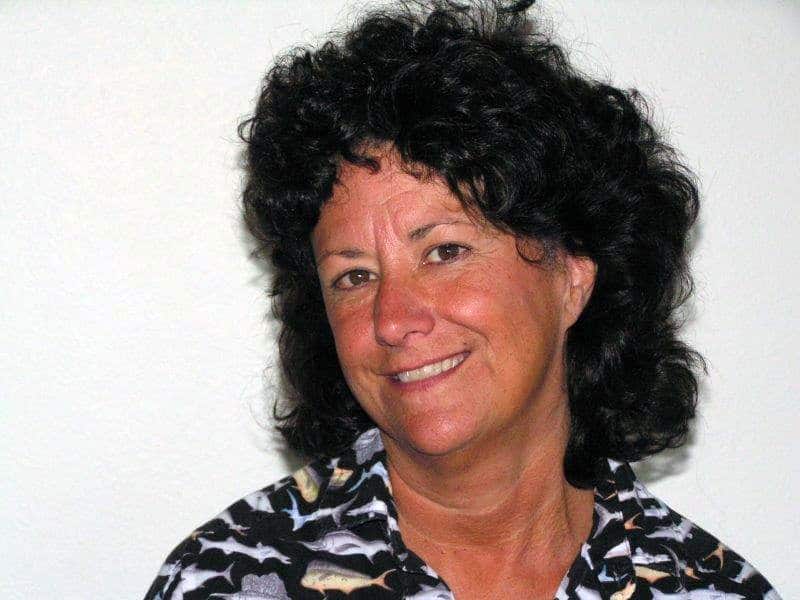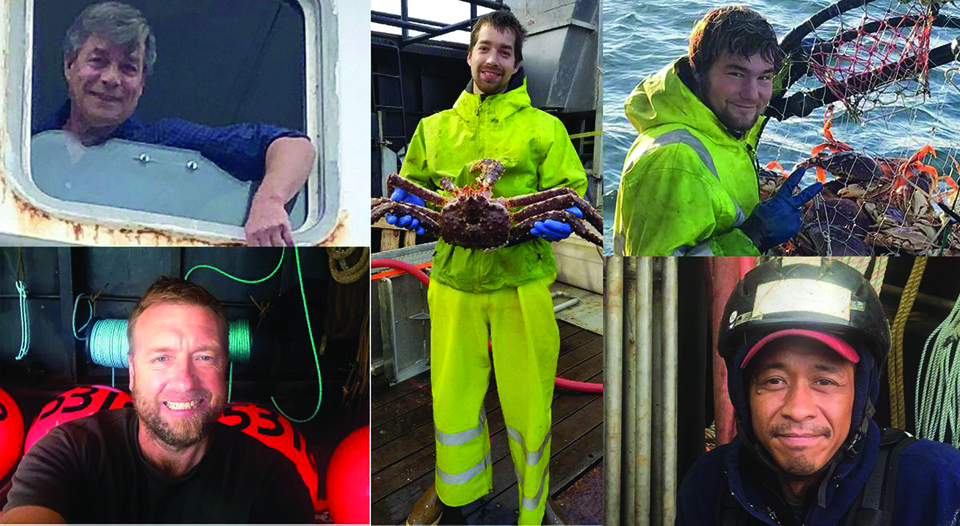For 30 years, Fish Factor has appeared in newspapers across the country, highlighting happenings in Alaska fisheries. This is its annual no-holds-barred look back at some of the year’s best and worst fishing highlights, in no particular order.
Best little-known fish fact: Alaska’s commercial fisheries division also pays for the management of subsistence and personal use fisheries.
Biggest fishing tragedy: The loss of five fishermen aboard the Scandies Rose that sank southwest of Kodiak.
Biggest new business potential: Mariculture of seaweeds and shellfish
Ballsiest fish move: Fishermen in Quinhagak formed a cooperative of 70 harvesters to revitalize commercial salmon fishing in Kuskokwim Bay, including members from Goodnews Bay, Platinum and Eek. It’s the first fishery since 2016 when the region’s “economic development” group abruptly pulled the plug on buying local fish.
Biggest fish challenge: Getting whaled. Many fishermen say they can lose up to 75 percent of their pricey sablefish catches when whales strip their lines.
Best fish invention: Slinky pots – lightweight, collapsible, inexpensive fishing pots that prevent getting whaled. The new gear is especially beneficial for smaller boats that can’t accommodate the hydraulics and 300 rigid metal pots on deck.
Biggest unexpected fish boost: As restaurants closed during the covid pandemic, more people turned to buying seafood to cook at home than ever before because of its health benefits.
Best fish straight talker: Representative Louise Stutes (R-Kodiak)
Best fish knowledge builders: Alaska Sea Grant
Best fish feeder: SeaShare, with more than 220 million fish servings to U.S. food banks since 1994 and counting.
Trickiest fishing conundrum: Balancing sea otters versus crab and other shellfish fisheries in Southeast Alaska.
Saddest fish story: The loss of young fishermen Sig and Helen Decker of Wrangell in a car crash.
Biggest fish missed opportunity: Wasting most of Alaska’s annual 3 billion pounds of fish skins, heads, etc. that could be used in nutraceuticals, pharmaceuticals and more. Such byproducts could be worth $700 million or more to Alaska each year. Cod skins produce about 11 percent collagen, nearly 20 percent from salmon skins. The marine collagen market is pegged at nearly $1 billion by 2023.
Most earth-friendly fishing town: Kodiak, for generating nearly 100 percent of its electricity from wind and hydropower, and for turning its fish wastes into oils and meals instead of grinding and dumping them, as in most Alaska fishing towns.
Best Alaska ocean watchers: Alaska Ocean Observing System — sea ice, water temperatures, ocean acidification levels, AOOS tracks it all.
Best daily fish news sites: SeafoodNews.com, Undercurrent News, SeafoodSource
Best healthy fish watchers: Cook Inletkeeper, SalmonState, Alaska Marine Conservation Council
Best fish mainstream pushers: Genuine Alaska Pollock Producers on its mission to make wild Alaska pollock the world’s favorite whitefish.
Biggest fish budget suck: Alaska Fisheries Science Center in Seattle, College of Fisheries and Ocean Sciences in Fairbanks. How much budget would be saved if scientists/students didn’t have to travel to reach the sea life they are studying? Why are those sites located so far away? “It’s the way it has always been.”
Best go to bat for their fishery: Bristol Bay Regional Seafood Development Association, The fishermen-funded/operated group pays a 1 percent tax on their catches. They can use the money in any way they choose to enhance/protect/promote their fishery. The Cordova/Prince William Sound RSDA is the only other region to take advantage of this opportunity sanctioned by the state in 2005.
Biggest fish broadsides: Ongoing trade tariffs with China and now, the European Union
Worst fish inequity: The U.S. buying millions of pounds of seafood from Russia since 2014 while Russia refuses to buy any U.S. seafood.
Best eco-friendly fish advocate: Net Your Problem by Nicole Baker. One woman’s quest to mobilize Alaska to remove old fishing nets, lines and gear has expanded from Dutch Harbor to Southeast and most places in between. The plastic gear is recycled into new products from sunglasses to snowboards.
Biggest fish fake: Genetically modified salmon, aka “Frankenfish.”
Best Alaska fish writers: Sarah Lapidus, Kodiak Daily Mirror; Elizabeth Earl, AK Journal of Commerce; Margie Bauman, Cordova Times, Fishermen’s News
Worst fish travesty: Cuts to commercial and sport halibut catches while millions of pounds get dumped as bycatch in trawl fisheries. Alaska can’t lay claim to having the “world’s best managed fisheries” until it gets its bycatch act in order.
Best fish assists: Biologists at the Alaska Department of Fish and Game
Best building future fishermen: Alaska Longline Fishermen’s Association in Sitka. Deckhand apprenticeships, fishing loan payback programs for new entrants based on catches are just a few of ALFA-spawned programs.
Fishing town that celebrates its fishing industry the most: Sitka
Fishing town that celebrates its fishing industry the least: Kodiak
Best fish boosters: Alaska’s salmon hatcheries.
Worst fish slap in the face: The state opting to close salmon fishing in federal waters of Cook Inlet. Alaska co-manages several fisheries with the feds but won’t in the Inlet?
Biggest Alaska fish beneficiary: Washington state. Seattle is home port to about 300 fishing vessels and all but 74 make their living in Alaska.
Worst fish flim-flam: The Pebble Partnership for its deceit to Alaskans, investors, Congress about the scope of its mining plans.
Biggest fish sigh of relief: The Pebble Mine permit being denied by the Army Corps of Engineers.
Baddest fish idea: Opening the Tongass National Forest to more roads and development. The Tongass produces 80 percent of the salmon caught in Southeast Alaska.
Biggest fish fake: Plant-based seafoods, such as “vegan shrimp” and “Toona.”
Does fish best with least: Alaska Seafood Marketing Institute. ASMI promotes Alaska seafood in the US and around the world with zero backing from the state. Norway, for example, backs its seafood marketing with over $50 million from a small tax on exports.
Biggest fish stiff: Alaska processors paying millions in out of pocket expenses for covid quarantines in hotels, chartering planes, PPE, testing and other protections and getting no paybacks from federal relief funds.
Biggest fish slap: Gov. Mike Dunleavy’s selection of Fish Board reps who live far inland, including a Pebble Mine director and one who has zero knowledge about commercial fisheries. Dunleavy hopes to ram them through with no legislative or public input.
Best fish life savers: Alaska Marine Safety Education Association
Most disliked fish moniker: The term ‘fisher’ in a well-intentioned but misguided attempt to be gender neutral.
Best new buy/sell fish better: The Seafood Auction based in Kenai gives fishermen, buyers and hatcheries an easier way to do business online from a single location.
Worst fish crash: Collapse of the Gulf of Alaska cod fishery due to four years of warm waters that wiped out several years classes. The stock appears to be making a slow comeback.
Best fish boost for babies: New federal dietary guidelines for the first time recommend that babies be introduced to seafood starting at six months because of the health benefits. Pregnant women also are strongly encouraged to eat more fish to enhance their baby’s brain and eye development.
Biggest fish failure: U.S. baby food makers who provide ZERO seafood offerings.
Best fish entrepreneurs: Zoi Maroudas of Bambino’s Baby Food (see above) – frozen portions of Hali-Halibut, Salmon Bisque, Sockeye Salmon Strips; and Arron Kallenberg of Wild Alaskan Company, which services more than 140,000 members from fulfillment centers across the country.
Most inexcusable fish gaffe: “Official” trade data from the U.S. Trade Representative that lists “petroleum and coal” as Alaska’s top export, although seafood has been tops for decades.
Alaska’s “other top manufacturing exports” are listed as transportation equipment, computer and electronic products and machinery. Top agricultural products listed are plant and livestock products, feeds and other grains, beef and veal. Who knew?!
Biggest fish story: Alaska fishermen, processors, managers and communities pulled off a successful salmon season along with other fisheries amidst the covid pandemic.







